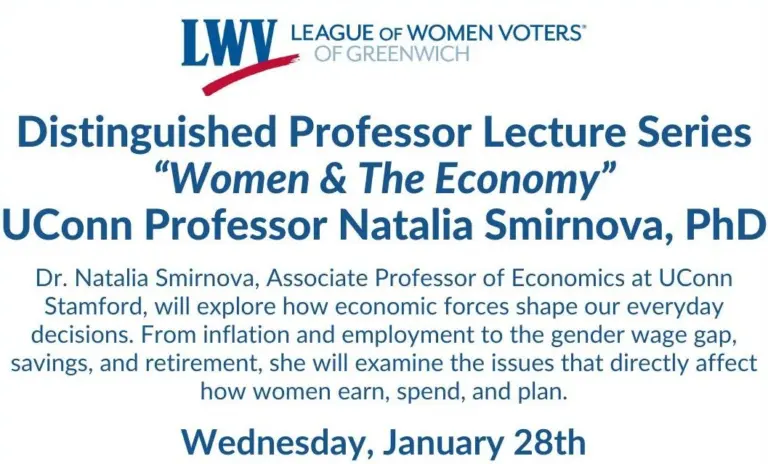 UPDATED:
UPDATED:
With Hours to Spare, Lamont Said He Would Veto the Housing Bill That Divided Connecticut
“Now we can go back to the drawing board to develop a housing policy that works for Connecticut.” — Rep. Tina Courpas
In a press conference on Monday morning, June 23 — just one day before House Bill 5002 would have automatically become law — Governor Ned Lamont said he would veto the wide-ranging housing reform bill, halting what had become one of the most contentious legislative efforts in recent Connecticut memory.
The decision capped weeks of public outcry and lobbying from local officials, grassroots organizations, and bipartisan lawmakers who warned that the 92-page omnibus bill, passed swiftly at the end of the legislative session, would upend long-standing traditions of municipal land-use control.
“I am glad to hear of the governor’s last-minute veto to H.B. 5002, which several of my colleagues and I called for as soon as it passed the Senate and tens of thousands across the state petitioned the governor’s office for,” said State Senator Ryan Fazio (R-New Canaan, Stamford, Greenwich), who personally urged the veto in conversations with the governor last week. “This should never have been in question. H.B. 5002 was a historic attempt to undermine local control of decision-making for towns and cities.”
Governor Lamont’s veto was not limited to housing reform. In tandem, he rejected Senate Bill 8, which would have extended unemployment benefits to workers on strike — a move he described as “a bridge too far.” But it was H.B. 5002 that galvanized sustained and organized opposition, particularly from suburban and small-town leaders across Fairfield County.
The bill’s provisions — which included “as-of-right” commercial-to-residential conversions, transit-oriented rezoning mandates, relaxed parking requirements, and affordable housing production quotas tied to infrastructure funding — drew criticism for being both sweeping and hastily introduced. Released just days before its passage, the legislation quickly became a symbol of what opponents decried as “top-down” policy-making.
CT169Strong, a grassroots coalition of local officials and zoning volunteers, blasted the process as undemocratic.
“The 92-page omnibus bill was an ill-conceived attempt to usurp local control on zoning matters, stifle public input and instill unworkable provisions,” wrote co-founders Alexis Harrison and Maria Weingarten. “Good intentions are no excuse for poor policy.”
Yankee Institute President Carol Platt Liebau echoed those sentiments, calling the veto “a win for residents, businesses, and Connecticut’s affordability.” The group credited others — including the Council of Small Towns (COST) and the Connecticut Conference of Municipalities (CCM) — for helping “raise statewide awareness of the potential harm the bill would have inflicted.”
In Greenwich, the veto was met with appreciation by elected officials who had viewed the bill as an existential threat to local governance.
“I want to thank the governor for taking the time to listen to the concerns of local officials all over the state,” said First Selectman Fred Camillo. “Here in Greenwich, where we’ve seen a 14% increase in affordable units in just the last 5½ years, we will continue to work towards the 10% goal — but in a way that takes into consideration all local factors and challenges that our community faces.”
State Representative Tina Courpas said she received “hundreds of emails and calls” urging her to vote against the bill. “There was a significant public outcry… not just from Fairfield County but from many small towns across the state who simply do not have the infrastructure to comply with these mandates,” she said.
But the veto was not without its critics. Open Communities Alliance, a nonprofit committed to expanding affordable housing access and combating segregation, issued a sharply worded statement expressing “profound disappointment.”
“Towns Take the Lead and HB 5002 were the result of years of hard work and compromise,” said Executive Director Erin Boggs. “We are profoundly disheartened by the governor’s decision to once again leave families struggling to afford housing in Connecticut with fewer options.”
Boggs argued that the bill’s critics mischaracterized its provisions and that its design in fact gave towns multiple opportunities to shape how affordability goals were implemented locally. “The governor’s complaints… appear based more on complaints from municipalities and NIMBY advocates who do not understand what the bill says,” she said.
For Governor Lamont, the decision underscores the difficult balance between statewide planning and municipal autonomy — a tension that has become central to Connecticut’s housing discourse. While he acknowledged the need for reform, he signaled a desire to revisit the issue, possibly in a special legislative session this fall.
Yankee Institute and others are urging caution, warning that any future legislation should be debated “through an open and transparent process during the regular legislative session.”
Senator Fazio, for his part, said he remains open to bipartisan collaboration. “We can still find common ground… to pass a compromise that reforms 8-30g, respects local control, and finds reforms that increase housing affordability and availability,” he said.
For now, the veto signals a significant continuing of Connecticut’s housing policy debate — one that will continue to shape the 2026 legislative agenda and beyond.
📄 Read the full text of the vetoed bill, H.B. 5002, here:
https://www.cga.ct.gov/2024/TOB/H/PDF/2024HB-05002-R00-HB.PDF
PRESS CONFERENCE SUMMARY
In Veto Defense, Lamont Calls for Reset on Housing Reform and Jobs Agenda
“This doesn’t mean stop. It means we can do better — and I think we will.” — Governor Ned Lamont
At a Monday morning press conference in Hartford, Governor Ned Lamont elaborated on his veto of House Bill 5002, offering the clearest picture yet of his thinking on one of the most polarizing legislative moves of the year. With the bill poised to become law by default on Tuesday, Lamont acted just in time — and used the moment to lay out a broader vision that emphasized partnership with local governments and pragmatism over political ideology.
“Fair share is make or break,” Lamont said early in the press conference. “If you’re going to dictate or suggest or imply a certain number of units, I don’t think that’s going to work for me.”
The governor was referring to the “fair share” formula in H.B. 5002, which would have assigned housing production targets to each municipality based on data compiled by state consultants. While Lamont acknowledged the state’s housing crisis and affirmed support for more supply, he said the provision — and the perception it created — was too provocative.
“I can explain till I’m blue in the face that these are just suggested numbers,” he said. “But if 169 mayors and first selectmen think it’s a dictate, we’re not going to get buy-in — and without buy-in, we won’t make progress.”
Lamont also took issue with the rollout of the bill, which he said came too fast and lacked the careful public engagement required for a policy of such scale. “I probably should have focused on this one sooner,” he admitted. “There’s a lot of misinformation out there, but also some real concerns.”
Still, Lamont defended many aspects of the bill, including provisions to allow “as-of-right” conversions of commercial properties into residential units and relaxed parking mandates near transit zones. “Those make sense to me,” he said. “But I want towns to take the lead.”
The governor confirmed that a revised version of the legislation could appear in a special session this fall, with changes negotiated directly with legislative leaders and municipal stakeholders. “We’re going to put together a better bill,” he said. “I want to be a partner to towns — not an adversary.”
Second Veto: Striking Workers Bill
Earlier in the press conference, Lamont also announced he had vetoed Senate Bill 8, which would have extended unemployment benefits to workers on strike after two weeks. The bill, backed by labor unions, had drawn fierce opposition from business groups and prompted concerns about economic competitiveness.
“I’ve been there on the picket line,” Lamont said, citing his past support for organized labor. “But paying striking workers is a bridge too far. I’m pro-jobs. I don’t want to do anything that jeopardizes our growing manufacturing base.”
He referenced recent job gains and ongoing recruitment efforts from other states — such as Georgia — to lure Connecticut companies away. “I was at the Paris Air Show,” Lamont noted. “I saw other governors pitching Pratt & Whitney to relocate. I told them we have the best workforce in the world — and we’re going to protect those jobs.”
Both vetoes drew mixed reactions. Labor leaders criticized the decision on S.B. 8, while housing advocates decried the loss of what they called a thoughtful and long-negotiated compromise on H.B. 5002. On the other side, local officials and free-market policy groups applauded Lamont for defending municipal sovereignty and avoiding what they saw as overreach.
An Offhand Cuomo Nod
Toward the end of the press conference, reporters shifted from policy to politics, asking Lamont a hypothetical about tomorrow’s Democratic primary in New York.
“If you lived in New York City,” one reporter asked, “would you vote for Andrew Cuomo?”
Lamont: “I would vote for Cuomo.”




